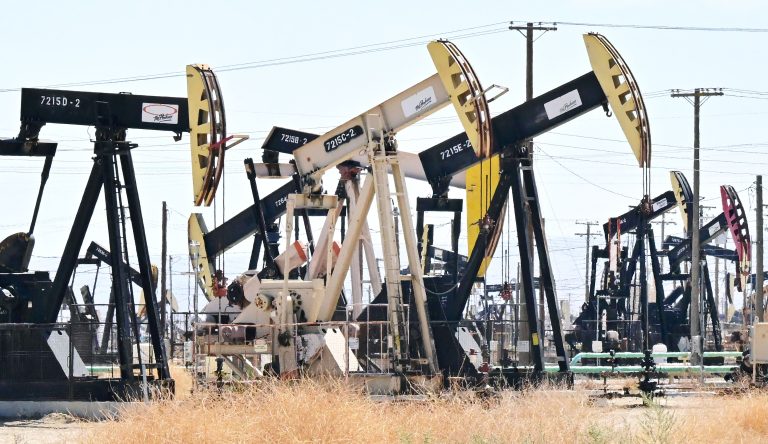Oil prices eased about 1 percent on Thursday as traders worried about the fuel demand outlook due to a stronger dollar and further interest rate hikes by global central banks.
After rising for three straight days, Brent futures fell 91 cents, or 1.1 percent, to $81.79 a barrel by 1:51 p.m. EST (1851 GMT), while U.S. West Texas Intermediate (WTI) crude fell 56 cents, or 0.7 percent, to $76.72.
“Crude prices edged lower as … global recession risks increased after a wave of central banks delivered another strong round of tightening. Oil’s recent rally is running out of steam as risk aversion runs wild,” said Edward Moya, senior market analyst at data and analytics firm OANDA.
Federal Reserve Chair Jerome Powell said on Wednesday the U.S. central bank will raise interest rates further next year, even as the economy slips toward a possible recession. On Thursday, the Bank of England and the European Central Bank raised interest rates to fight inflation.
U.S. stock indexes fell sharply on Thursday, with the Dow on track for its steepest single-day fall in three months, as the Federal Reserve’s guidance for protracted policy tightening quelled hopes the rate-hike cycle would end anytime soon.
Success
You are now signed up for our newsletter
Success
Check your email to complete sign up
“The oil price is under pressure today as the Fed’s hawkish guidance for its monetary policy sparked renewed concerns about economic growth, lifting the U.S. dollar and sending commodity prices down,” said CMC Markets analyst Tina Teng.
A stronger U.S. dollar makes oil more expensive for those using other currencies.
U.S. retail sales fell more than expected in November, but consumer spending remains supported by a tight labor market, with the number of Americans filing for unemployment benefits decreasing by the most in five months last week.
In China, the world’s second biggest economy, lost more steam in November as factory output slowed and retail sales extended declines, the worst readings in six months, hobbled by surging COVID-19 cases and widespread virus curbs.
Also pressuring oil prices, Canada’s TC Energy Corp said it was resuming operations in a section of its Keystone pipeline, a week after a leak of more than 14,000 barrels of oil in Kansas triggered a shutdown.
By Reuters (Additional reporting by Noah Browning in London, Jeslyn Lerh in Singapore and Laura Sanicola in Washington; Editing by David Goodman, Sherry Jacob-Phillips, David Gregorio and Diane Craft)
















